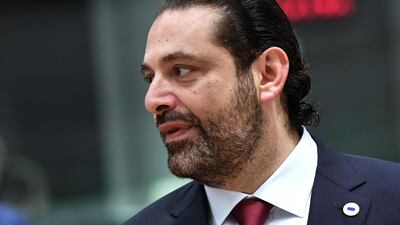Lebanon’s offshore energy hopes are facing mounting risk as potential reserves remain unproven and a major discovery could reignite territorial disputes, thwarting the indebted Arab country’s foray for oil and gas revenues.
The next 18 months will provide clarity about the sector as offshore activity picks up but political tensions in the East Mediterranean will increase the risk of further exploration, especially, in the southern blocks, BMI Research, a unit of Fitch Ratings, said in a report released on Saturday. Lebanon has awarded exploration contracts for blocks 4 and 9 in its economic zone to a global consortium.
“The upcoming drilling programme in Blocks 4 and 9 will be a crucial bellwether to industry and government over the scale and viability of reserves in Lebanese waters,” the report said. “A significant hydrocarbon discovery in the country could act as a spark for a geopolitical flash-point between Lebanon and Israel.”
In February, Lebanon granted its first offshore energy exploration and production agreement for two of its 10 offshore blocks with a consortium of France’s Total, Italy’s Eni and Russia’s Novatek. Lebanon joined the regional race to find and develop oil and natural gas in the eastern Mediterranean late in the game after years of delays, leaving it trailing behind Cyprus, Egypt and Israel in exploring the area’s energy wealth. The consortium will begin drilling in 2019 after conducting geological surveys this year.
______________
Read more:
Hariri accuses Israel of threat over Lebanon's oil and gas
Enormous Saudi Arabian solar push could lead to new Middle East energy era
______________
Tensions between Lebanon and Israel, who are technically in a state of war with one another, increased in January over the contested areas of exploration, where both countries lay claim to block 9, among two others, and Lebanese prime minister Saad Hariri said the US is working to resolve the conflict.
The potential undersea reserves are crucial for Lebanon, which is burdened with a public debt amounting to about 150 per cent of its GDP, according to the IMF. Compounding its economic woes are factors including the cost of supporting 1.5 million refugees from the Syria, political uncertainty and internal policy disagreements. The nation, which is caught in the middle of regional conflict, is counting on revenue and taxes from the energy discoveries to bolster its finances.
Large gas reserves have already been discovered in the eastern Mediterranean in the last few years, including the Zohr deposit of Egypt and the Leviathan and Tamar fields off Israel’s coast. According to some government estimates, the territorial water of Lebanon could hold as much as 96 trillion cubic feet of natural gas and 850 million barrels of oil.
If proven, extraction of those resources could translate into huge savings for the country’s economy and will end its dependence on fuel imports.
Lebanon has made “significant progress” in its ambitions to explore for oil and gas over the last 18 months, according to the BMI report. It re-launched its first offshore license tender in May 2017, which had faced delays since 2013 amid political disputes, and finalised its petrol tax law in September last year that helped lure international oil companies to its tender.
“Lebanon's nascent hydrocarbon exploration sector will provide more clarity through the next 18 months, as offshore activity picks up, culminating with drilling in Blocks 4 and 9 next year,” the BMI report said.


